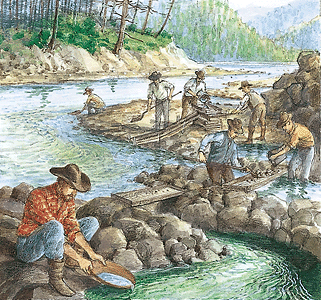I approached this novel with some trepidation – not because of the 800+ page length necessarily (with the right book I love to get stuck in for a good long time in order to really live with the characters) – but because of the structure. Catton frames the book’s sections with the stellar and planetary positions of the time. I had a fear that this book would be based a lot on astrological signs, personalities based on planetary positions and the sort of new-age sign reading that I don’t know anything about or have any interest in. It seems to me anyone who makes judgements on people based on star signs are working with generalities which bear no relation to the unique qualities of the individual. If one were a geek on this subject matter I’m sure this book could be fruitfully read with astrology in mind as the characters are closely aligned with certain planets and discover how their paths cross based on celestial alignments. However, this isn’t necessary because more than anything it’s an engaging, intelligent, complex, great big thrilling yarn of a read. As I got really into the thickness of the book’s plot and its fascinating array of characters I was enthralled by its story of a New Zealand gold-mining town in the mid-1800s. Deceit, greed, ambition, sailing adventures, hidden fortunes, familial strife, swapped identities, reinvention of the self, wacky séances, dirty deals, murder, prostitutes, opium. This book has all that and more.
What’s most impressive is that Catton is able to write such a many-paged incredibly intricately plotted narrative with such a huge cast of characters while balancing them all at the same time and keeping the reader alert to who is who and what is happening when. That takes serious talent. Each character is richly described so as to make them distinctive and she leaves markers along the way to remind you who that character is and their place in the plot even if they drop from the narrative for a while. The author creates a fascinating array of well-realized distinct characters. However, the only character which I think she fails somewhat is Te Rau Tauwhare, a Maori guide and gem-stone hunter. When he comes on the scene I feel like some of her research shows itself a little too plainly as she describes his connection with his native New Zealand culture and she lapses somewhat into stereotype. However, the rest of the (predominantly male) cast are shown to have varied interesting personalities – especially Quee Long with his painful past and his determination to get revenge.
This is a fiercely intelligent book as well as being a really engaging read. Along the way the author sometimes drops in really intelligent concepts about human nature and the complex working of psychology. For instance at one point she ruminates that “although a man is judged by his actions, by what he has said and done, a man judges himself by what he is willing to do, by what he might have said, or might have done – a judgement that is necessarily hampered, not only by the scope and limits of his imagination, but by the ever-changing measure of his doubt and self-esteem.” The author is, of course, speaking of men and women but I think she writes “a man” because this novel is written in the style of a novel in its time period using lots of parochial turns of phrase. This quote suggests to me a really complex interplay between how we are seen externally from how we view ourselves from the inside and why we are always so continuously and unfairly harsh on ourselves.
Another fascinating quote I tripped on and read over and over was this thought about the power of desire in motivating our actions. “Reason is no match for desire: when desire is purely and powerfully felt, it becomes a kind of reason of its own.” Surely this explains why so many of our actions make no logical sense when viewed externally. But when they are driven by the burning desires we harbour within they take on their own unavoidable power.
The story is richly rewarding as the mystery of what happened to a dead hermit, a drugged prostitute, a missing affluent miner, a mysterious widow and a suspicious scarred captain is gradually revealed – mostly through the stories of a group of individuals gathered together for a secret meeting in a pub at the start of the book. I’m sure I missed out on some of the connections, but most of the novel’s intriguing questions are answered by the end in a series of succinct well-paced chapters. I can just imagine taking this book with me to my dream cabin in Maine to reread when I’m much older and getting even more out of the story. It is a door-stop of book so I was glad I read the kindle version as my wrists would probably be sore from the strain of holding it up for so long if I didn’t. Whether it will win the Booker prize this year I don’t know. I’m reading my way through the shortlist right now. But this book does stand as a monumental achievement in writing – especially as it’s only the author’s second published novel.









